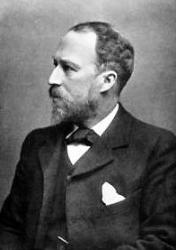Planning worship?
Check out our sister site, ZeteoSearch.org,
for 20+ additional resources related to your search.
- |
User Links
Person Results
Joseph Haydn

1732 - 1809 Person Name: Francis Joseph Haydn (1732-1809) Composer of "HALLE" in Songs of Praise Franz Joseph Haydn (b. Rohrau, Austria, 1732; d. Vienna, Austria, 1809) Haydn's life was relatively uneventful, but his artistic legacy was truly astounding. He began his musical career as a choirboy in St. Stephen's Cathedral, Vienna, spent some years in that city making a precarious living as a music teacher and composer, and then served as music director for the Esterhazy family from 1761 to 1790. Haydn became a most productive and widely respected composer of symphonies, chamber music, and piano sonatas. In his retirement years he took two extended tours to England, which resulted in his "London" symphonies and (because of G. F. Handel's influence) in oratorios. Haydn's church music includes six great Masses and a few original hymn tunes. Hymnal editors have also arranged hymn tunes from various themes in Haydn's music.
Bert Polman
Joseph Haydn
Peter Ritter
1760 - 1846 Person Name: Peter Ritter (1760-1846) Composer of "HALLE" in Many Voices; or, Carmina Sanctorum, Evangelistic Edition with Tunes Peter Ritter; b. 1760, Mannheim; d. 1846
Evangelical Lutheran Hymnal, 1908
Peter Ritter
Joseph Anstice
1808 - 1836 Person Name: Prof. Joseph Anstice (1808-1836) Author of "Evening Hymn" in Many Voices; or, Carmina Sanctorum, Evangelistic Edition with Tunes Anstice, Joseph , M.A., son of William Anstice of Madeley, Shropshire, born 1808, and educated at Enmore, near Bridgwater, Westminster, and Ch. Church, Oxford, where he gained two English prizes and graduated as a double-first. Subsequently, at the ago of 22, he became Professor of Classical Literature at King's College, London; died at Torquay, Feb. 29, 1836, aged 28. His works include Richard Coeur de Lion, a prize poem, 1828; The Influence of the Roman Conquest upon Literature and the Arts in Rome (Oxford prize Essay); Selections from the Choice Poetry of the Greek Dramatic Writers, translated into English Verse, 1832, &c. His hymns were printed a few months after his death, as:— Hymns by the late Joseph Anstice, M.A., formerly Student of Christ Church, Oxford, and Professor of Classical Literature, King’s College, London, Bridgwater, 1836, and thus introduced:—
"As none of the following Hymns had the advantage of being corrected and prepared for the press by their lamented Author, his family have not considered themselves at liberty to bring them before the public; but, having reason to believe that a large circle of surviving friends will be gratified by possessing a memorial of the manner in which some of his leisure hours were employed, and of the subjects which chiefly occupied his thoughts, during the last few months of his life, they have consented to their being printed for private distribution.—-Bridgwater, June, 1836."
This work contains 52 hymns on various subjects, together with a poem "To my Hymn Book." The circumstances under which they were written are thus detailed by Mrs. Anstice in a communication to the Rev. Josiah Miller, author of Singers and Songs of the Church:—
"The hymns were all dictated to his wife during the last few weeks of his life, and were composed just at the period of the day (the afternoon) when he felt the oppression of his illness—all his brighter morning hours being given to pupils up to the very day of his death."-—S. & S., p. 495.
A few of the hymns are of a joyful character, but the circumstances under which they were written account for the prevailing tone of sadness by which they are chiefly characterized. About one half of these hymns were included by Mrs. Yonge in her Child's Christian Year, 1841. Being thus brought before the public, many soon came into common use. Those in most extensive use are: "Father, by Thy love and power;" "In all things like “Thy brethren, Thou;" "Lord of the harvest, once again;" and, "O Lord, how happy should we be."
-- John Julian, Dictionary of Hymnology (1907)
Joseph Anstice
Michael Costa

1808 - 1884 Person Name: Costa Composer of "PHILIPPI" in The New Laudes Domini [Michaele Andrea Agniello Costa]
Born: February 14, 1808, Naples, Italy.
Died: 1884, Hove, East Sussex, England.
Buried: Kensal Green Cemetery, London, England.
Costa learned the rudiments of music from his maternal grandfather, Giacomo Tritto; he was placed at the Real Collegio di Musica in Naples, and after a public exam received a scholarship from Ferdinand I, King of the Two Sicilies. He composed his first cantata at age 15, and went on to write symphonies, oratorios, operas, and quartets. He eventually moved to London, where he was knighted in 1869. In 1871, he became "director of the music, composer, and conductor" at Her Majesty’s opera.
--www.hymntime.com/tch/
Michael Costa
Charles Harford Lloyd

1849 - 1919 Person Name: C. H. Lloyd, b. 1849 Composer of "EVENING PRAYER" in Church Hymns Born: October 16, 1849, Thornbury, Gloss, England.
Died: October 16, 1919, Slough, England.
Buried: Windsor Cemetery, Windsor, Berkshire, England.
Lloyd attended Thornbury Grammar School and Rossall School, and was a Scholar of Magdalen School, Hertford College, Oxford (BMus 1871, BA 1872, MA 175, DMus 1891). He served as organist at Gloucester Cathedral (1876); Christ Church, Oxford (1882, succeeding Samuel Wesley); precentor of Eton College (1892); organist of the Chapel Royal (1914); and editor of Church Hymns (1903).
Sources:
Frost, p. 680
Music:
Credo Domine
Lundy
Sacramentum Unitatis
Savile
St. Frideswide
http://www.hymntime.com/tch/bio/l/l/o/lloyd_ch.htm
Charles Harford Lloyd
Samuel P. Warren
1841 - 1915 Person Name: Samuel Prowse Warren Composer of "EVENING HOUR" in The Cyber Hymnal b. 2-18-1841, Montreal, Que., d. 10-7-15, New York; organist and composer
Samuel P. Warren


 My Starred Hymns
My Starred Hymns


